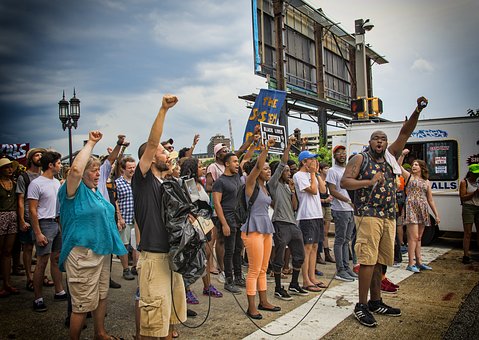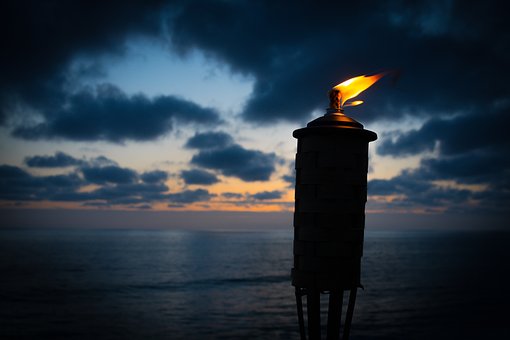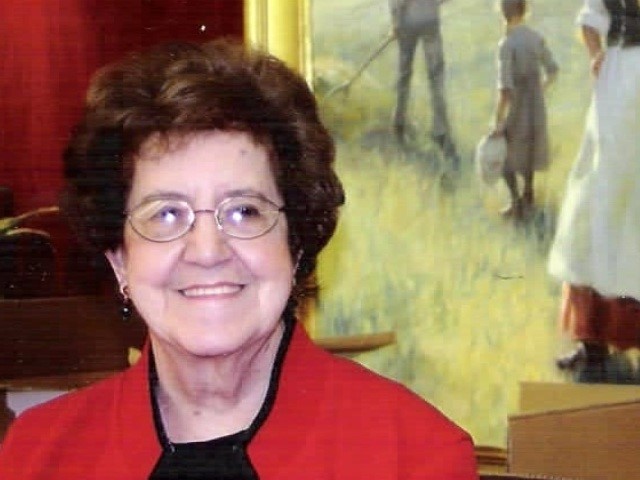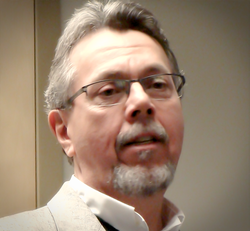|
At each stage of my life I found it helpful to have a set of values to help me stay on track. These values have changed as I have aged and matured. This is made obvious by looking at the principles I espoused in my twenties. A friend of mine once said he was a “young man seeking adventure.” I loved that phrase and adopted it as a motto to live my life. And believe me, living up to that motto was a task that I worked hard at achieving and I think that I succeeded. I have no regrets about how I lived my life back then, but sometimes wonder how I survived. I chalk it up to my mother’s prayers and God’s angels watching out for me.
In my mid-life, everything was centered on faith, family and career; in that order. I was graced with the ability to intertwine my faith life with my work for most of my career. During much of that time I earned my living as a community organizer or as an advocate for poor through the Catholic Archdiocese. My work was rooted in the rich history of Catholic Social Teaching. I also worked hard during that period to ensure that I created a healthy work-life balance in order to be present for my family. I had the great joy of being a soccer coach, a baseball and softball coach, a basketball bench coach and a volleyball line judge. I once spent sixteen days on a bus with sixteen – sixteen-year-old boys travelling the east coast for soccer tournaments. During the early part of the trip I overheard some of these young men quiz my son; asking what I was like. My son’s response was spot on. He told them: “My dad’s a nice guy, but you don’t want to piss him off.” I guess you could say that some of the vestiges of my early life seeking adventure had not quite worn off. And now I find myself in the last third of my life. Having a set of core values is more important now than at any time previously. My wife Jennie is a RN and for the last decade has worked providing healthcare to aging adults. Jennie says that getting old is not for sissies. Listening to her stories of those who have aged well and those who have not, helped me to come up with the values I hope will guide me through the aging process. These values are: honesty, courage and awe. Honesty. We’ve all heard the stories of those crotchety senior citizens who relish the ability to speak their mind and not worry about what they say or whom they harm with their words. That’s not the type of honesty I’m talking about. I’m talking about the honesty to look inward with the clear-eyed realism that allows me to seek those areas where I may be wrong; where I may have hurt others; where I need to continue to grow as a person of faith and love. I am also talking about the honesty that takes a realistic look at the possible mental or physical limitations I may be experiencing and own up to them. I wear two hearing aids because I don’t want to be that person who sits at the family dining room table, isolated from the conversation because I can’t understand what is being said but I’m too stubborn or too proud to own up to the fact that I can’t hear well. Courage. Courage and honesty go hand in hand. It takes courage to be honest with oneself and with others. It takes courage to face up to one’s physical and mental deterioration and to do something about it. It takes courage to watch your life-long friends suffer and die. It takes courage to face one’s own mortality and prepare for it with dignity and faith instead of fear. Awe. Looking at life with a sense of awe is something I added a few years back. It came from the realization that as I got older, I tended to look at things from a perspective of the past. I was developing a “been there, done that” attitude. For example, I spent the last twenty years sailing on Lake Michigan. At one point, I found myself taking the beauty of the days on the lake for granted. Clear blue skies and good wind? Nice, but I remember the time when…..and I’d launch into a story from one of my past sailing adventures. Developing a sense of awe helps to keep me present, in the moment. It reminds me to slow down and feel the sun on my face and bask in its warmth. It tells me to listen more closely to my friend, even if he is chattering on because he just might have something important to convey. Living in a sense of awe is one way to remind myself that I am going to die and I had better embrace the life I have because I know that my days ahead are fewer than my days gone by. Living life with a deliberate sense of honesty, courage and awe is one way this aging man can continue to seek adventure.
0 Comments
“Community is first of all a quality of the heart. It grows from the spiritual knowledge that we are alive not for ourselves but for one another” wrote religious teacher Henri Nouwen in his book Bread for the Journey.
I have had the fortunate grace to be surrounded by family and community for most of my life. I’ve written before about the Italian neighborhood where I grew up; where every mother and grandmother watched out for every child on the street. And, there were are lot of children to protect. On summer nights, we would play a game called Release (sometimes known as “Jailbreak”). It is essentially a game of hide and seek played with two teams. We would start the game at dusk and play until near midnight on most nights. The entire Westside neighborhood was the boundary: from 5th to 8th street and from the Youghiogheny River to the main east-west street, Crawford Avenue. The teams were massive, co-ed and comprised of all ages: it was not unusual to have 20 kids per team. Unions were another version of community that I took for granted from my formative years. Western Pennsylvania, where I grew up, was steel, coal and coke country; all of which were hotbeds of union organizing. In the 1920’s during a bitter coal miner strike a group of 200 women from my home county, armed with knives, clubs, salt and pepper, marched on the strike breakers and attacked them. If they couldn’t beat or stab them, they threw salt and pepper into their eyes. And when the police intervened they turned on the police, attacking them as well. The union culture was so strong that when I moved to Wisconsin as a Vista volunteer just out of college, I was shocked to learn that there were factories where the workers weren’t protected by a union. In western Pennsylvania, it was just understood that workers were unionized. Given this background, it should be no surprise that I became a community organizer and that the work of organizing came easily to me. I believe it is something I just absorbed, growing up. Organizing is first and foremost about creating relationships; about creating community and ultimately about striving for justice. As we witness the after-glow of the 3 million + women and men who marched in cities and towns across America in protest of the Trump administration agenda, I think it is important to ponder the words of Henri Nouwen in the opening sentence: “community is first of all a quality of the heart.” To be successful over the long-term, the drive to organize must be sustained. One-off marches like we saw after the inauguration are good to make a statement, but creating systemic change takes a continuous effort over a significant period of time. Those who marched in the light of solidarity must now become ready to do the foot soldier’s work of organizing. Everyone must be ready to carry on with the phone calls, the legislative visits, the letter writing campaigns, the election campaigns, the fund raising, the public actions even in the face of crushing defeats. And there will be crushing defeats. I predict that those who are fired up by the hatred of president Trump and the policies he supports will be the first ones to wither away when the defeats begin piling up. But, those who organize by building relationships, by supporting community, who understand that we are here both for ourselves but also for others: they will be the ones who will ultimately win the hearts and minds of America and who will bring about lasting change. To change systems, we must first change hearts. And the first heart we should think about changing is our own. To win, we must be motivated by love and we must work diligently to build community. We buried my mother last week. She was 100 years old when she died and was the last remaining relative of her generation. At the luncheon after the funeral, someone asked the “older cousins” to pose for a picture. As we stood there - me and my brother, my two sisters and our four cousins – I realized that we are now the elders of our Soika-Rulli family. While we were waiting for pictures to be snapped, I asked our group “is this the official passing of the torch?” The response was a sober yes. Up until that moment, no one had thought about this new dynamic. Who we are as a family is a result of the legacy of all those relatives who have come before us. This legacy was demonstrated by the more than 100 friends and family who showed up for my mom’s wake and funeral; a surprise given that all of her friends and peers have passed on and she moved away from her home town 17 years ago. It is also demonstrated by how often I was hugged and asked if I was OK, or was told how much I was loved or how much my mom and our family were loved. The sense of love, family and friends was a warm blanket wrapped around this difficult task of saying good bye. That is the true legacy of my mom and her generation. We are now the matriarchs and patriarchs of this family. Where we go will be a result of the actions we take; of the examples we set and how diligently we work to keep the family close and connected. It will be based on how we live out the value of love and family. There is another transition being thrust upon us as a country. We are on the cusp of a new president and a new governing administration in America. As this change is upon us, we are forced to ask who we are as a people; what do we cherish and what are our values. What we sometimes forget is that we get the government we deserve. We get the government that we will tolerate. We get the policies and budget expenditures that we allow our representatives to administer. Sometimes, we forget that the country is us and not the politicians we “hire” to make our government work for us. The legacy of our country rests on our shoulders and not on the machinations of a group of elected officials. I owe it to my family to ensure that we remain close and that all feel loved, respected and connected. I owe it to my country to ensure that the values of inclusion and of support for the common good are born out in the budgets and policies enacted by our government. The transition of responsibility is upon us. If we accept that responsibility, then we must lead. Our families and our country require it. When I introduce people for the first time, the highest praise I can give in describing one or both parties is to say that they have a big heart. To have a big heart is to be able to accept others as they are and to treat them with graciousness and respect. To have a big heart means to me that your values and your actions align. I don’t really care about how much you own, how much money you may have, what position of authority you may or may not have. For me, life is all about how you love and treat others. In my world, saying someone has a big heart means the person has looked deeply into their own soul. They understand their own failings and as a result, have the ability to allow others space to be who they are without judgement. I guess you could say that having a big heart means you make room in your life for others; that you are tolerant, gracious, forgiving, and loving. Perhaps an easier way to describe it is to look at others as if through the eyes of God. My mom – who was 100 years old – died this week. She was this tiny 5’4” Italian mother and grandmother whose heart was open to anyone who had the good grace to walk through her door. Here’s one example of what I mean. One of my dearest friends decided that he was leaving the Catholic priesthood. Shortly after he made this life-altering decision, he came to visit my mom. I remember vividly sitting in her kitchen, drinking coffee and talking about what was ahead for him. Unexpectedly, my mom got up from the table and started rummaging around her kitchen cupboards, pulling out pots and pans and cooking utensils all of which she handed to my friend to take and keep to help him get on his feet. In my mom’s world, life began and ended at the kitchen table and she just couldn’t envision my friend starting out on a new life with no way to cook and take care of himself or to entertain family and friends. She opened her heart as she opened her cupboards to give him what should could. My mom set the standard for love and graciousness in our family and is my model of a big-hearted person. When one of my childhood friends heard that mom died, she wrote a condolence note saying: “I will always remember your mom’s kindness and her smile.” That was the effect my mom had on most who got to know her. I’m not sure I will ever have the boundless capacity for love that my mom displayed. But I know that if it is something I aspire to, I will most assuredly be a better person for the trying. My mom’s physical stature was small, but her heart was big enough to embrace all whom she met. |
AuthorMichael Soika has been a community activist for more than 30 years working on issues of social and economic justice. His work for justice is anchored by his spiritual formation first as a Catholic and now as a Quaker. Archives
June 2018
Categories |





 RSS Feed
RSS Feed